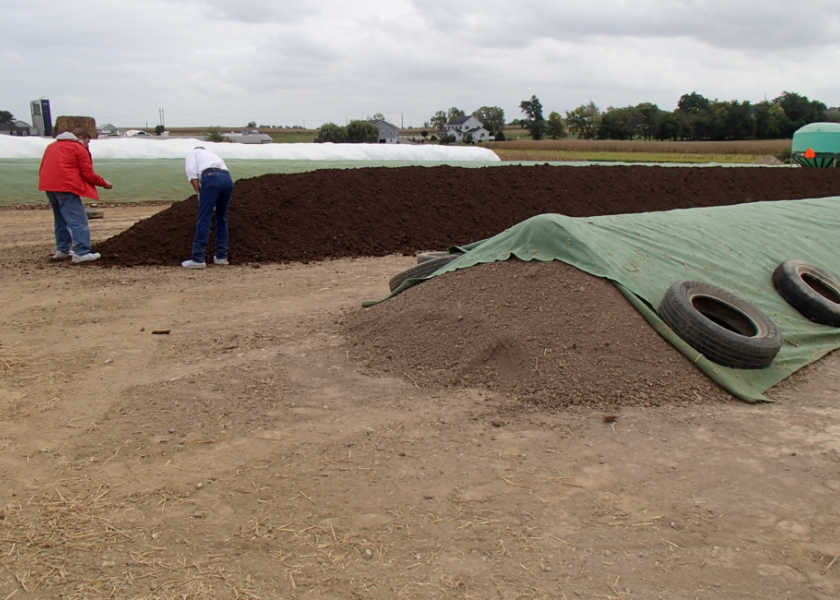Composting Manure Could Reduce Antibiotic Residues

Composting can reduce the concentration of antibiotics in cattle manure, but the degree of that reduction can vary depending on how it is tested.
Excretions of antibiotics in cattle urine and feces, and subsequent accumulation in feedlot and dairy manure, has led to concerns over potential contributions to emergence of antibiotic-resistant pathogens. Previous studies have shown that composting can break down antibiotic molecules and significantly reduce their concentrations in manure before the manure is spread on crop fields. However, a group of Canadian researchers note that most past studies have used manure that was “fortified” with antibiotics. In other words, researchers mixed a pre-determined concentration of antibiotics into the manure prior to composting, then measured the rates of dissipation.
The Canadian researchers, from the University of Manitoba, Environment Canada and Agriculture and Agri-Foods Canada in Lethridge, Alberta, set out to compare the dissipation rates in fortified manure with those from manure exreted by cattle treated with those same antibiotics. This method was intended to more-closely mimic real-world conditions.
The group found that composting dramatically reduced antibiotic concentrations in manure, regardless of whether the antibiotics were added diretly to the mamanure or fed through the cattle. They did find differences between the two tereatments though, depending on the type of antibiotic.
In this study, the researchers composted the two types of manure – fortified manure from untreated animalas and manure from antibiotic-treated animals – and analyzed samples from each every three to four days for 30 days. On average, they found an 85 to 99% reduction in antibiotic concentrations by the end of the 30-day composting period.
For chlorotetracycline (CTC), the dissipation rate in excreted manure was significantly greater than that in fortified manure. However, for sulfamethazine and tylosin, the researchers found greater dissipation rates in the fortified manure than in the excreted manure. For tylosin, the dissipation rate in fortified manure was 99%, compared with just 85% for excreted manure.
The researchers concluded that composting can be used to reduce environmental loading of antimicrobials before field application of beef cattle manure. However, they note that “dissipation rates of fortified antimicrobials during manure composting may not accurately reflect those of antimicrobials that are consumed and excreted by cattle.”
The study’s results were published in the Journal of Environmental Quality and the abstract and full report are available online.
For related information, see these articles from BovineVetOnline:
Producers Need Disposal Plan for Dead Livestock
Manage manure to contain Johne's Disease







